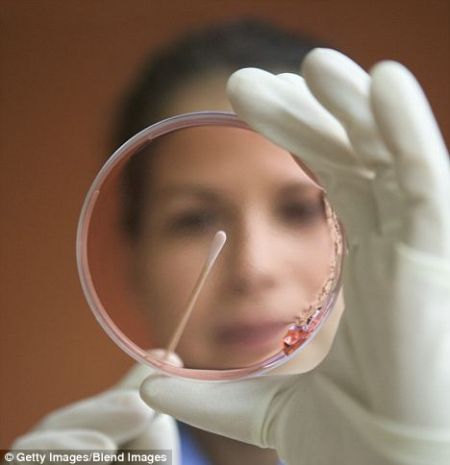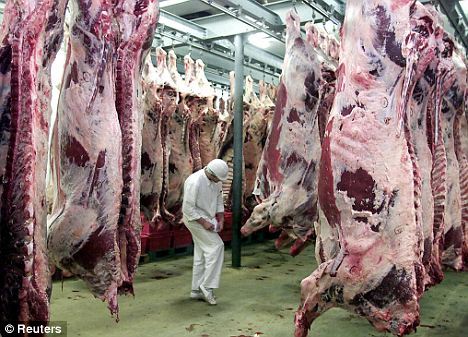Scientists claim laboratory synthetic meat will become reality (Figure)
According to the British "Daily Mail" report, scientists have claimed that the technology of synthesizing meat in the laboratory has been fully mastered, and what is being studied is only how to further reduce its cost in order to achieve profitability. There are currently about 30 research teams around the world working on manufacturing meat products in laboratories. As a large number of funds and professionals join this group, this technology will hopefully help solve the hunger problem that plagues humanity. Biotechnology: Scientists are approaching the ultimate goal of successfully placing laboratory test tube meat on the commercial market Using this technology, people can use a small amount of muscle cells to produce a large amount of meat, so this is a more ecologically friendly technology, and can greatly reduce the killing of animals. The animal welfare organization "Peta" has promised $ 1 million to any scientist who can prove that the muscles developed in the laboratory can be put on commercial sale before 2016. Environmental protection organization Peta rewards research work on synthetic meat, hoping that this work will help reduce human killing of animals Now, according to the report of "Food Safety News", this breakthrough in laboratory-cultivated meat may arrive early in 2012. Mark Post is from the University of Maastricht in the Netherlands. He recently announced that laboratory synthetic meat will begin production in his laboratory soon. His research was funded by the Dutch government, in addition to an anonymous donor ’s financial support. The anonymous person donated 300,000 Euros to Professor Post for this research. But it is a pity that Professor Post ’s research work does not meet the criteria for reward awards issued by Peta, because he cultivates beef instead of chicken. In the United States on the other side of the Atlantic, the University of Missouri is funding Professor Nicholas Genovese to support his research work with another professor, Michael Roberts. These two All are top scientists in the United States in stem cell and livestock breeding. Prior to this, Professor Genovese had carried out relevant research work with Professor Vladimir Mironov of the University of South Carolina. Professor Mironov has now transferred his research work to Brazil, and the Brazilian government is currently working on research and development of artificial meat synthesis. Once scientists make breakthroughs and find a way to achieve industrial production, the price of this "test tube meat" is expected to fall to a level that is cheaper than traditional meat. But whether this idea can become a reality is still very important, that is, whether test tube meat can be accepted by the majority of consumers. Will the public still tend to want their steaks and meats to grow in nature, not from test tubes? In addition, the unique texture of natural meat is one of the most difficult to imitate among all meat characteristics, so it is expected that the first batch of synthetic meats will be difficult to have these subtle characteristics of natural meat, see It may look more like processed meat products, such as patties or sausages. In order to make this test-tube meat, scientists first removed muscle cells from the animal and placed them in protein nutrient solution for cultivation. In this process, the tiny cells that originally needed to be seen with a microscope multiplied many times and began to form tissues, just like the incubation process of an egg. Some researchers pointed out that as long as the proper original cultured cells and the correct method are used, only 10 pork cells can be used to cultivate 50,000 tons of pork in two months. The Peta organization claimed that the reason the organization offered a reward to promote research on meat production in the laboratory is because many people "cannot quit their hobby of eating meat." According to the bounty notice proposed by the organization, any scientist in the world, as long as they successfully develop a synthetic chicken with the same taste and texture as natural chicken, and sold at least 2,000 pounds (approximately) in the market in 10 U.S. states by early 2016 907 kg), you can get a reward of 1 million US dollars. ( 2 Tier 201 Stainless Steel Dish Rack 2 Tier 201 Stainless Steel Dish Rack,2 Tier Dish Rack,Standing Steel Dish Rack,Steel Frame Dish Rack Jiangmen Jianghai Jianshang Houseware Co.,LTD. , https://www.jianshanghouseware.com

